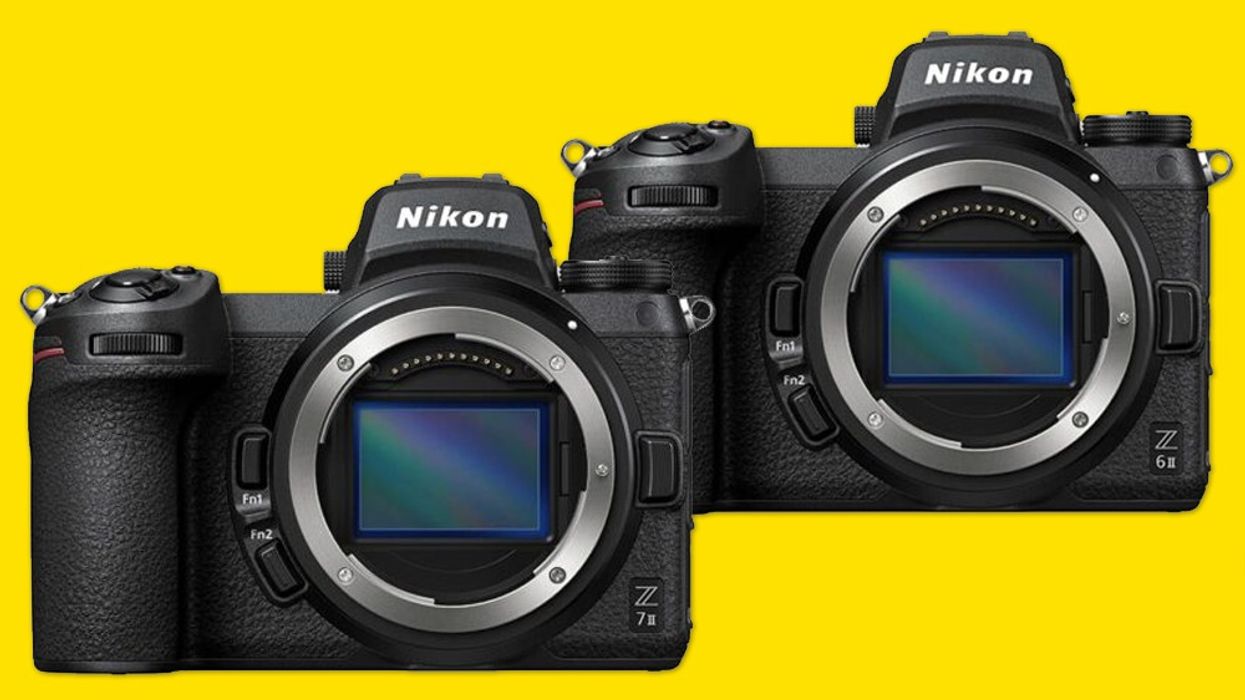Nikon's Z7 II and Z6 II: A Refresh Worth Considering
The new full-frame Z7 II and Z6 II mirrorless cameras offer improvements but with added cost.

Nikon teased the official launch of the Z7 II and Z6 II full-frame mirrorless cameras prior to their arrival, and today, the company has made the new digs official. Both cameras use the same sensor as the previous generation but are equipped with a refined autofocus, better eye and animal AF, an improved energy savings mode, faster buffering speeds, and dual card slots. Better yet, the version II models get a revamped interface and can have their firmware updated via SnapBridge, Nikon's app that connects tablets and smartphones to the camera.
Key Features:
- Dual EXPEED 6 processors
- Improved autofocus
- Built-In 5-Axis Vibration Reduction
- Hybrid PDAF
- 4K 60p video
- N-Log color profile
- Dual card slots: CFexpress and SD (XQD/CFX Type B, SD-UHS-II)
- More buffer memory
- Headphone/Microphone inputs
- USB power
- 4:2:2 10-bit HDMI output
- Weather Sealed
- Wi-Fi and Bluetooth
Uses Nikon EN-EL15c batteries
Sensor
Though the sensor has remained the same, the new dual EXPEED 6 processor design provides the cameras with a significant bump in not only autofocus peformance, but in video capability. The Z7 and Z6 maxed out at 4K 30p, where as the gen-II models offer 4K 60p, which is a nice addition if you plan on overcranking in-camera to to add slow-motion in post.
Video Formats
Video for the Z7 II and Z6 II is fairly on par with the rest of the market in terms of capability. It can record full-frame 4K UHD at common frame rates up to 60p on the Z7 II. Full HD up to 120fps. 4K 120p is not available on either camera model. However, it does record 10-bit N-Log. As for external 12-bit Apple ProRes RAW, you still need to pay for an additional upgrade on both Z7 II and Z6 II. Additionally, both cameras will support Blackmagic's RAW, which will come as a firmware update. It's worth noting the Z6 II won't see 4K 60p until 2021.
The 5-axis image stabilization will help when shooting handheld, and when shooting video with Z-mount glass, they've been designed the lenses to minimize breathing and tout quiet AF performance. Nikon also kept the record limitation on both cameras to 29 minutes 59 seconds.
Autofocus
According to Nikon, both cameras see improvements in autofocus when it comes to low light situations as well as AF tracking when recording video. How much improvement will have to be tested. Nikon is saying users will also see improved performance in autofocusing as Eye and Face-Detection AF is now available in the Wide-Area AF (L) mode.
Dual Card Slots
The most welcomed addition to the new cameras is the dual card slots. One for CFexpress Type B, the other for SD, which is similar to the Canon R5 route whereas the Sony a7s III went dual combo card slots that accept the slimmer CFexpress Type A as well as SD.
Nikon Z7 II & Z6 II Mirrorless Cameras

- 4K UHD 60p video
- Dual card slots
- Comfortable. Durable. Intuitive
- Vertical Grip Ready
Nikon Z7 II & Z6 II Mirrorless Cameras

- 4K UHD 60p video
- Dual card slots
- Comfortable. Durable. Intuitive
- Vertical Grip Ready













